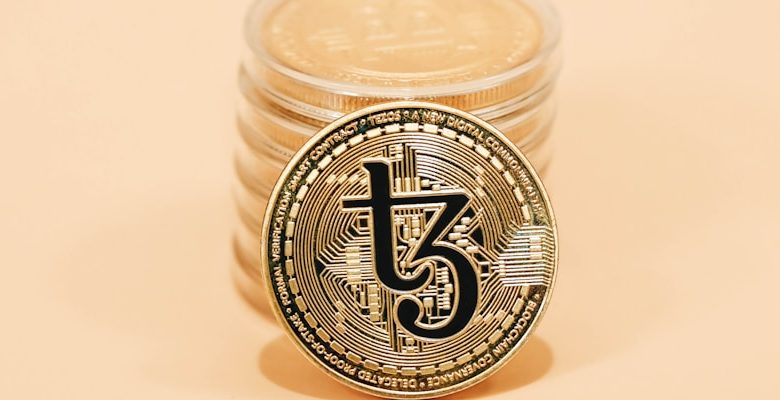The Role of Utility Tokens in Blockchain Ecosystems

- Understanding Utility Tokens in Blockchain Technology
- The Functionality of Utility Tokens in Decentralized Systems
- How Utility Tokens Drive Value in Blockchain Ecosystems
- The Importance of Utility Tokens for Network Participation
- Utility Tokens vs. Security Tokens: A Comparative Analysis
- Regulatory Challenges Surrounding Utility Tokens in the Crypto Space
Understanding Utility Tokens in Blockchain Technology
Utility tokens are a type of digital asset that provide access to a specific product or service within a blockchain ecosystem. These tokens are not intended to be used as investments or store of value, but rather to facilitate the functioning of a particular platform or network.
Utility tokens are typically created and distributed through an initial coin offering (ICO) or token sale. Investors can purchase these tokens in exchange for cryptocurrency like Bitcoin or Ethereum. Once acquired, utility tokens can be used to access and pay for services offered by the issuing company.
One of the key advantages of utility tokens is their ability to incentivize user participation within a blockchain ecosystem. By offering tokens as a reward for engaging with the platform, companies can encourage users to contribute content, provide feedback, or perform other valuable actions that help to grow and improve the network.
It is important for investors to understand that utility tokens do not represent ownership in the company issuing them, nor do they entitle holders to dividends or profit-sharing. Instead, these tokens grant access to specific features or benefits within the platform, such as discounted fees, premium content, or voting rights on network governance issues.
In conclusion, utility tokens play a crucial role in the functioning of blockchain ecosystems by providing a means of accessing and utilizing platform services. While they do not offer the same potential for financial returns as security tokens, utility tokens can still provide value to both companies and users by fostering community engagement and driving network growth.
The Functionality of Utility Tokens in Decentralized Systems
Utility tokens play a crucial role in decentralized systems by providing access to a platform or network’s products or services. These tokens are designed to have specific functionalities within the ecosystem, such as enabling users to make transactions, access certain features, or participate in governance decisions.
One of the key functionalities of utility tokens is their ability to incentivize users to participate in the network. By rewarding users with tokens for contributing value to the ecosystem, such as by providing computing power or verifying transactions, utility tokens help to create a self-sustaining and collaborative community.
Utility tokens also serve as a means of exchange within the decentralized system. Users can use these tokens to pay for goods and services, as well as to trade with other participants in the network. This creates a liquid market for the tokens and allows users to easily access and utilize the platform’s offerings.
Furthermore, utility tokens can be used to access exclusive features or content within the ecosystem. By holding a certain amount of tokens, users may unlock premium services, gain early access to new features, or participate in special events. This adds value to the tokens and incentivizes users to hold onto them for future benefits.
In conclusion, utility tokens are an essential component of decentralized systems, providing users with the means to interact with the platform, incentivizing participation, facilitating transactions, and unlocking exclusive features. By understanding the functionality of utility tokens, users can fully leverage the benefits of blockchain ecosystems.
How Utility Tokens Drive Value in Blockchain Ecosystems
Utility tokens play a crucial role in driving value within blockchain ecosystems. These tokens are designed to provide access to a specific product or service offered by a blockchain platform. By holding utility tokens, users can unlock various functionalities within the ecosystem, such as accessing premium features, participating in governance decisions, or obtaining discounts on services.
One of the key ways in which utility tokens drive value is by creating demand for the token itself. As more users join the ecosystem and require utility tokens to access services, the demand for these tokens increases. This heightened demand can lead to an appreciation in the token’s value, providing early adopters and investors with potential returns on their investment.
Additionally, utility tokens can also incentivize user participation and engagement within the ecosystem. Platforms may offer rewards in the form of utility tokens for users who contribute to the network, such as by providing computing power, validating transactions, or creating content. These incentives help to foster a vibrant and active community around the platform, further increasing the token’s value.
The Importance of Utility Tokens for Network Participation
Utility tokens play a crucial role in incentivizing network participation within blockchain ecosystems. These tokens serve as a means of access to a platform or network’s services, products, or features. By holding utility tokens, users gain the ability to interact with the network, participate in governance decisions, and access exclusive benefits.
One of the key advantages of utility tokens is their ability to align the interests of network participants with the overall goals of the ecosystem. By requiring users to hold and use utility tokens to access network services, platforms can ensure that participants are financially invested in the success of the network. This, in turn, helps to create a more engaged and committed user base.
Furthermore, utility tokens can also serve as a mechanism for funding network development and expansion. Through token sales or initial coin offerings (ICOs), blockchain projects can raise capital to support ongoing operations and drive growth. This financial support helps to sustain the network over the long term and incentivizes developers to continue building and improving upon the platform.
Utility Tokens vs. Security Tokens: A Comparative Analysis
When it comes to blockchain ecosystems, utility tokens and security tokens play distinct roles with their unique characteristics. Understanding the differences between utility tokens and security tokens is crucial for investors and developers alike.
Utility tokens are digital assets that provide access to a product or service within a specific ecosystem. They are not designed as investment vehicles and do not represent ownership in the company. On the other hand, security tokens are subject to federal securities regulations and represent an investment contract in a company.
Utility tokens are used to access a platform or service, while security tokens are designed to offer potential returns on investment. Utility tokens have a utility value within the ecosystem, while security tokens have a financial value tied to the success of the company.
Utility tokens are typically used in decentralized applications (dApps) to facilitate transactions and interactions within the ecosystem. They can also be used for voting, staking, or accessing premium features. Security tokens, on the other hand, are regulated by securities laws and offer ownership in the company, dividends, or voting rights.
Overall, utility tokens are more focused on utility and access to products or services, while security tokens are more focused on investment and financial returns. Understanding the differences between utility tokens and security tokens is essential for navigating the complex world of blockchain ecosystems.
Regulatory Challenges Surrounding Utility Tokens in the Crypto Space
Utility tokens in the crypto space have been facing significant regulatory challenges in recent years. These challenges stem from the lack of clear guidelines from regulatory bodies on how to classify and regulate utility tokens. This ambiguity has created uncertainty for both token issuers and investors, leading to potential legal risks and obstacles in the adoption of utility tokens.
One of the main issues surrounding utility tokens is their classification under existing securities laws. Regulators are struggling to determine whether utility tokens should be treated as securities or commodities, as they possess characteristics of both. This uncertainty has resulted in regulatory bodies taking different approaches to utility token regulation, further complicating the landscape for market participants.
Another challenge facing utility tokens is the risk of fraud and scams in the market. Due to the lack of regulatory oversight, there have been cases of fraudulent utility token offerings that have defrauded investors of millions of dollars. This has raised concerns among regulators about the need for increased consumer protection measures and stricter enforcement actions against fraudulent token issuers.
Despite these challenges, there is a growing recognition among regulators of the potential benefits that utility tokens can bring to the blockchain ecosystem. Utility tokens have the ability to facilitate access to decentralized platforms and services, enabling new forms of innovation and economic activity. As a result, regulators are beginning to explore ways to balance consumer protection with fostering innovation in the utility token space.
Overall, the regulatory challenges surrounding utility tokens highlight the need for a more coherent and comprehensive regulatory framework that can provide clarity and certainty to market participants. By addressing these challenges, regulators can help unlock the full potential of utility tokens in the blockchain ecosystem while ensuring investor protection and market integrity.



